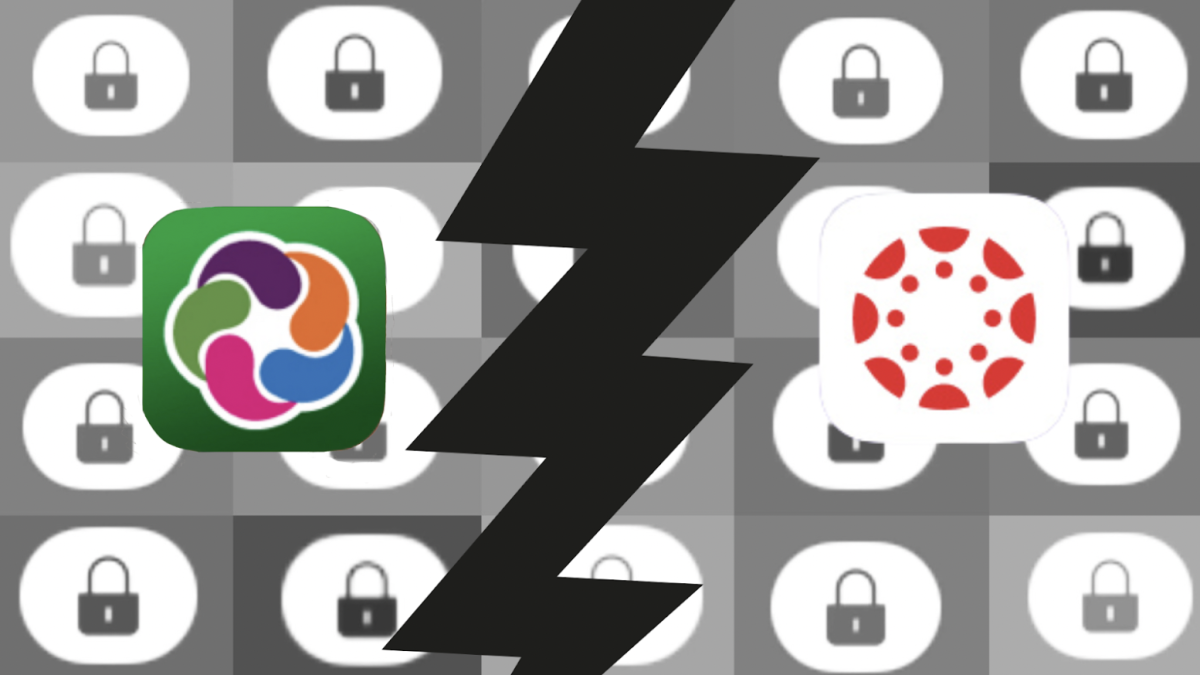When Donald Trump was elected President of the United States in November, we knew the world would change. However, as teenagers, we did not predict the degree to which his policies would shape our futures. He has attacked colleges and universities, destabilized public education, slashed through healthcare, shaken our economy and, above all, infringed upon our freedom. As we enter adulthood, our generation will be forced to reckon with the numerous ways in which Trump has shattered the American status quo.
For many young people, politics feels distant. After all, we didn’t even have the opportunity to vote in November’s election. But with Trump at the helm, our futures rest in his hands. So we refuse to remain silent. These policies are important to us. They are important to teenagers across the country. They should also be important to you.
The Economy
Contrary to what Trump wants you to believe, it’s Americans who pay for tariffs.
In April, Trump enacted sweeping tariffs on nearly all imports, escalating to 125% on certain goods before partially retracting them weeks later. This erratic policy-making has led to significant economic uncertainty.
Trump justified his tariffs under the International Emergency Economic Powers Act (IEEPA), citing trade deficits as a national emergency. However, a panel on the U.S. Court of International Trade—including a Trump-appointed judge—unanimously ruled that IEEPA does not grant the president unilateral power to impose such broad tariffs without congressional approval.
Despite the court’s decision to vacate these tariffs, a federal appeals court temporarily reinstated them, pending further legal proceedings. Trump won’t be giving up easily, and this challenge reflects a broader disregard for legal norms that’s been ingrained into the administration’s actions.
These tariffs have tangible effects on everyday life. Major retailers such as Walmart and Macy’s have raised prices on clothing, electronics and household goods, according to Business Insider. The Tax Foundation estimates that the U.S. household will incur an average tax increase of $1,155 in 2025 and $1,397 in 2026.
As high schoolers prepare to move out, the unpredictable economy is sure to affect our ability to afford independent living. How can we be expected to plan our futures, pursue independence and feel secure in our choices when the economy is unsteady and the government treats the law like a suggestion, rather than a standard?
Higher Education
Far right pundits have long accused colleges of brainwashing students. Trump, however, has been the first politician to directly challenge the system, leveraging federal funding over universities in order to force conformity. From curriculum and student punishment to admissions policies and DEI, he claims that higher education is an instrument of the “woke” machine, and has sought sweeping, constitutionally-questionable reforms, including conditional funding revocations and admission restrictions.
Trump’s attack on the U.S. college system came to a head when Harvard University, arguably the most elite and respected institution in the country, refused to bow to his demands. As tensions between Harvard and the Trump administration escalated, the president made good on his threats to cut research funding and even banned the university from enrolling international students, who make up 27.2% of Harvard’s student body.
Many high school students, understandably, feel removed from the threat. But the president’s disregard for academic freedom will not stop with the Ivy League. He will not be satisfied until he has exerted his power over higher education, ensuring that his xenophobic and anti-liberal ideologies reign supreme. Above all, his conflict with Harvard is a culture war, and he will not hesitate to expand this attack to other universities that don’t bend to his will.
Trump’s actions set a dangerous precedent, and as college-bound teenagers prepare to enter the American university system, it will surely be felt. Institutions will either cave to Trump’s demands or face the consequences, and neither option is conducive to student success. In the land of the free, academic self-determination is tantamount, and any threats to this principle are a threat to education and learning as a whole.
School Vouchers
Under the guise of tapping into the country’s network of private education, Trump is pushing a bill that lays the groundwork for a population vulnerable to fearmongering and misinformation.
That’s what the new educational voucher plan makes possible. The bill, which has been passed by the House but not yet the Senate, would give families vouchers for educational spending, including private schools and homeschooling. All students with household incomes less than three times the median income in their region would qualify for these vouchers. In Bend, the cutoff would occur at $266,376. For reference, the average household income in Tetherow is $210,893.
The vouchers would be funded through private donations, which would be tax deductible. They could be from private individuals, or large corporations. NPR estimates that this would cost the government around $5,000,000,000 annually.
Similar programs have been implemented in the past with varying success. When put into use on a small scale focusing on those in poverty, communities found a small boost in average test scores. But when states like Louisiana and Indiana administered the program statewide, they found a significant drop off in test scores and a rise in low-quality private schools.
This program would also divert funding from public schools, which depend on student counts for funding. Public schools are an essential component of our country, and serve students from all backgrounds. A mass exodus from public schools would also mean a drift from the regulation and standardization of learning. Private schools can teach essentially whatever they want, with few limits on extremism in politics or religion. This can serve to remove the separation of church and state, and the ideologies that come with it.
This bill is a threat to free thinking and education, laying the groundwork for an uneducated, indoctrinated population susceptible to authoritarian governance.
Reproductive Healthcare
Trump’s stance on women’s reproductive rights is complicated. He has shown some support for in vitro fertilization, but when it comes to abortion access for women, Trump is still negligent.
On Jan. 25, 2025, he reinforced the Hyde Amendment, a 1977 ban stopping any federal funding for elective abortions, through his signing of Executive Order 14182. This includes Medicaid funding for women seeking abortions across state lines, which has become a necessity after the overturning of Roe v. Wade. And let’s not forget that in his previous presidency, Trump was the one who appointed three of the five Supreme Court justices responsible for the ruling.
For young adults, the choice of where to live or pursue higher education may now be affected by different states’ abortion laws. Especially for women, living in a state that restricts abortion access could be extremely detrimental in certain situations. After all, over half of abortions performed in 2022 were for women in their 20s, according to the Centers for Disease Control. Additionally, the Hyde Amendment may prevent women in certain states from getting necessary healthcare.
This new reality, imposed and strengthened by Trump, which intrudes on the health and happiness of all Americans, is now something that young adults are forced to consider as they plan their future.
Final Thoughts
Under the Trump administration, the threats extend far beyond a single executive order or piece of legislation: The integrity of our democracy is at risk. As teens, we will inherit the destruction that this presidency has already left in its wake. And so, we must rise up. Whether it be reproductive rights, education, the economy or any other infringement upon our freedom, the burden of protest rests on our shoulders. Even if we cannot vote, our voices still have power, and we must not leave it untapped.































